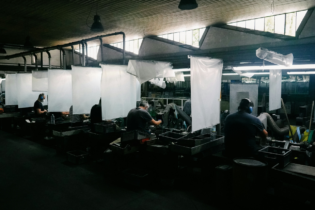By Njombo Lekula, Managing Director: PPC SA Cement division
The country is currently experiencing a palpable positive mood since the recent changes in government and while it is too early for the new leadership to have introduced any meaningful economic changes, they are sending encouraging signals to the market. Will this have significant bearing for the construction industry? In my view the answer is in the affirmative. The industry is poised to benefit in the medium to long term. The construction industry is generally a good indicator of economic performance. According to PWC’s report entitled: SA construction 3rd edition (2017), the construction industry is a significant contributor to employment and economic growth. Last year it contributed an average of 3.9% to national GDP.Shifting cement consumption patterns
Following completion of 2010 Soccer World Cup projects, the industry slumped as major government infrastructure projects either dried up or tremendously slowed down. In fact in the past few years we have seen a shift in cement consumption patterns. Demand has been driven by small projects and individual household consumption as opposed to big infrastructure projects which mainly required bulk supply. As a consequence of the shift in demand, cement companies have had to adjust their business models to cater for this new reality. In addition, the South African economy has in the past few years been experiencing recessionary pressures and negative growth. As a result the industry performance has been sluggish. The changes in government and the commitment by new leaders to focus on growing the economy present an opportunity to boost the industry. Investor confidence is said to be very high, the highest it’s been since 2009.A conducive economic environment
The President and Minister of Finance, respectively in the State of the Nation Address (SONA) and the Budget Speech, committed the government to uproot corruption and create a conducive economic environment. A conducive economic environment is not only positive for our industry, but raises the general level of economic activity. It heightens the possibility that firms will make positive investment decisions, including putting their money in fixed assets.Despite the budget being contractionary, a significant portion has been earmarked for investment expenditure as opposed to consumption. The industry stands to benefit from this.
A cursory look at the budget shows that close to R50 billion is earmarked for infrastructure related spending including on schools, industrial and public infrastructure. Speedy implementation of these projects, and the removal of corrupt practices, will make a significant positive difference. To expedite infrastructure project delivery, President Cyril Ramaphosa announced that he will assemble a team to oversee the implementation of new projects, particularly water projects, health facilities and road maintenance. The industry, as a significant economic contributor and a direct beneficiary, should avail its expertise and actively participate in the conversation. We cannot afford to be by-standers who wait for the government to propose solutions for us.






